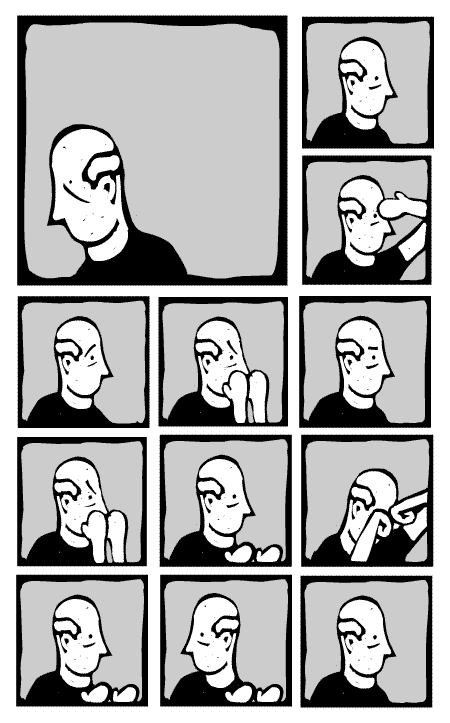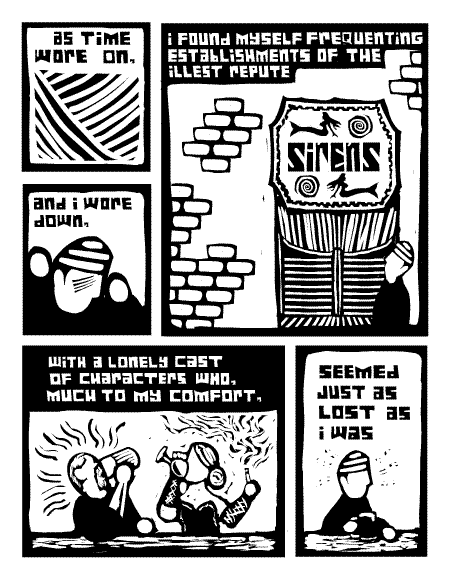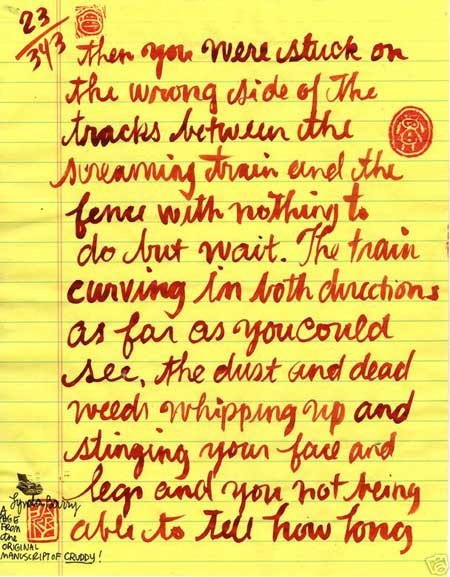“I did a strip…once where Charlie Brown was wondering out loud. He was sitting on a bench with Linus. [They were discussing] War and Peace or Beethoven’s Ninth, or something like that. Then he gets up and strikes out. I think he sits down and says something like, ‘And I’ll probably never write War and Peace, either.’
“I always think about things like that. What is of importance? I suppose the most important thing is just to do what you can do best. You have no other choice, do you? You have a certain amount of ability. And do the best with your abilities.”
– Charles Schultz, in a massive interview with Gary Groth, 1997

mini-exercise ripping off Chris Ware from yesterday
* * *
I’m really disappointed that Art Spiegelman is withdrawing his work from the Jewish Museum’s Masters of American Comics exhibit, because it was going to be one of the places Meg and I visited on our honeymoon in NYC. The other bummer is that it’s a split show, so anything in the first half of the 20th century (including, gulp, Schultz, McCay and Herriman) is over at the Newark Museum, and we’re surely not taking the train over there on our limited stay. I guess we’ll have to settle (!!) for Crumb, Panter, and Ware.
Speaking of Ware, he was interviewed about the exihibit and asked, “Who was overlooked?” His response:
Lynda Barry. Her semiautobiographical experiments were pretty much responsible for the maturation comics experienced in the ’90s.
I thought that was pretty awesome of him to say, and come to think of it, I’m just amazed that Lynda isn’t better known than she is. What a genius. Meeting her and becoming exposed to her work (and this sounds overly-dramatic), in a lot of ways, changed my life, or at least my art, because I believe she’s the perfect model of the writer/artist — all her characters arise out of this wonderful world that is uniquely hers…
Anyways, speaking of heroes: George Saunders is coming to Oberlin in April.
For Monday, I’m trying to put together a post about musical notation, Schroeder, and sound effects in comics. Have a good weekend!







